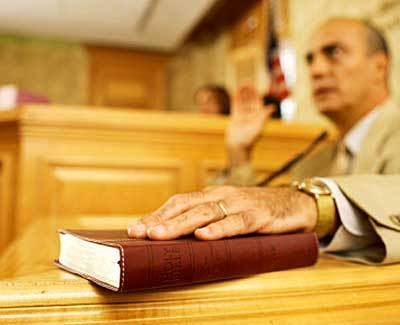Trespassing refers to the unauthorized entry onto someone else’s property. Property owners have legal rights to protect their land from unwanted intrusions. While these rights extend to preserving their property’s security, the question of whether a property owner can legally detain a trespasser is complex and varies based on jurisdiction and circumstances. This overview delves into the legality of detaining trespassers by property owners, examining relevant laws, potential liabilities, and justifications.
Legal Framework: Can A Property Owner Detain A Trespasser Legally?
Generally, property owners have the right to detain a trespasser on their property, but the methods and legality vary depending on local laws. It’s advisable to contact law enforcement if trespassing occurs rather than taking matters into your own hands.
Property owners have a fundamental right to protect their property and safety. However, this right must be balanced with the individual liberties of potential trespassers. Legal systems generally acknowledge that property owners can take reasonable actions to prevent trespassing, but the extent of those actions may differ
Understanding Trespassing
Trespassing is generally defined as the unauthorized entry onto the land or property of another. It can occur in various contexts, including:
1. Real Property: Trespassing onto land or real estate without permission.
2.Personal Property: Trespassing onto personal property, such as a vehicle or belongings, without authorization.
Trespassing laws aim to protect the rights of property owners and ensure the peaceful enjoyment of their property. The specifics of trespassing laws can vary significantly between jurisdictions, but they typically distinguish between different types of trespass:
1. Criminal Trespass: Involves intentionally entering onto another’s property without permission, knowing that entry is forbidden. Criminal trespass is often classified as a misdemeanor or, in more serious cases, as a felony.
2. Civil Trespass: Involves the unauthorized intrusion onto another’s property, resulting in harm or interference with the owner’s rights. Unlike criminal trespass, civil trespass usually entails seeking damages through a civil lawsuit rather than criminal prosecution.
Rights of Property Owners
Property owners possess certain rights inherent to their ownership, including the right to:
1. Exclusive Possession: The right to exclude others from entering or using the property without permission.
2. Use and Enjoyment: The right to use the property for its intended purpose and to enjoy its benefits without interference.
3. Disposition: The right to transfer, sell, or otherwise dispose of the property as the owner sees fit.
These rights form the basis of a property owner’s authority to take action against trespassers, including the option to detain them under certain circumstances.
Legal Basis for Detaining Trespassers
The legal authority of a property owner to detain a trespasser is typically derived from common law principles and statutory provisions. Common law refers to legal principles established through court decisions and customary practices, while statutes are laws enacted by legislative bodies.
Common Law Principles
Under common law, property owners generally have the right to use reasonable force to remove trespassers from their property. The use of force must be proportionate to the threat posed by the trespasser and intended solely to protect the property or effectuate a lawful removal.
The concept of “citizen’s arrest” also stems from common law principles. A citizen’s arrest allows private individuals to detain someone whom they reasonably believe has committed a crime until law enforcement authorities arrive. However, the legality and scope of citizen’s arrests vary between jurisdictions and may be subject to specific statutory requirements.
Statutory Provisions
Many jurisdictions have enacted statutes that define the rights and obligations of property owners regarding trespassers. These statutes may outline the circumstances under which a property owner can detain a trespasser and the permissible methods of doing so.
For example, some states in the United States have “citizen’s arrest” statutes that codify the authority of private individuals to detain suspected criminals under certain conditions. These statutes may specify the types of offenses for which a citizen’s arrest is permissible and the procedures to be followed when detaining an individual.
Limitations and Considerations
While property owners have the right to protect their property and detain trespassers in certain situations, there are important limitations and considerations to keep in mind:
1. Use of Force: Property owners must exercise restraint when detaining trespassers and avoid the use of excessive force. Using force beyond what is reasonably necessary to effectuate the removal or detention of a trespasser can result in legal liability for the property owner.
2. Risk of Injury: Detaining a trespasser carries inherent risks, including the potential for physical confrontation or injury. Property owners should prioritize their safety and the safety of others when deciding whether to detain a trespasser and should avoid escalating situations unnecessarily.
3. False Imprisonment: Detaining someone without legal justification or in violation of their rights can constitute false imprisonment, a civil tort for which the property owner may be held liable. To avoid liability, property owners should ensure that they have a reasonable basis for detaining a trespasser and that they adhere to applicable laws and regulations.
4. Call Law Enforcement: In many cases, it is advisable for property owners to contact law enforcement rather than attempting to detain a trespasser themselves. Law enforcement officers are trained to handle such situations and can intervene safely and effectively.
Case Law and Precedents
Case law plays a crucial role in shaping the legal principles surrounding the detention of trespassers by property owners. Courts often provide guidance on the permissible scope of property owners’ actions and the standards to be applied in assessing the legality of such actions.
In Katko v. Briney, a landmark case in the United States, the Iowa Supreme Court considered the use of spring guns as a means of protecting property from trespassers. The court held that property owners are not justified in using deadly force to protect property against mere trespassers and that the use of spring guns constituted an unreasonable and unlawful means of defense.
Similarly, in State v. Valentine, the Supreme Court of Montana addressed the issue of citizen’s arrests and held that private individuals may arrest someone without a warrant if they have probable cause to believe that the individual has committed a felony. However, the court emphasized that the use of force must be reasonable and proportionate to the circumstances.
These cases illustrate the importance of adhering to legal standards and exercising caution when detaining trespassers as a property owner.
International Perspectives
The legal principles governing the detention of trespassers by property owners can vary significantly between countries and legal systems. While many jurisdictions recognize the right of property owners to protect their property and detain trespassers under certain circumstances, the specific rules and procedures may differ.
In some countries, such as England and Wales, the use of force by property owners to detain trespassers is regulated by common law principles and statutory provisions. Property owners are generally permitted to use reasonable force to remove trespassers from their property but may be held liable for excessive or unnecessary force.
In other countries, such as Canada, the legal framework for detaining trespassers may be influenced by both common law principles and statutory provisions. Property owners are generally entitled to protect their property and may use reasonable force to detain trespassers until law enforcement authorities arrive.
The Concept of Reasonable Force: Understanding Self-Help Measures
Property owners may employ reasonable force to protect their property or detain a trespasser. Reasonable force refers to actions that are proportionate to the threat presented by the trespasser. This could involve using non-lethal force to restrain a trespasser until law enforcement arrives.
Types of Detention: Citizen’s Arrest and Civil Arrest Laws
1. Citizen’s Arrest: Authority and Limitations
Citizen’s arrest allows property owners to detain trespassers until law enforcement arrives. However, this authority is not universal and varies by jurisdiction. Property owners must follow specific procedures to avoid liability for false imprisonment or excessive use of force.
2. Civil Arrest Laws: Private Person’s Right to Detain
Some jurisdictions permit property owners to detain trespassers under civil arrest laws. These laws allow a private person to detain a trespasser, but similar to citizen’s arrest, they must adhere to strict guidelines to avoid legal consequences.
Justifications for Detention: Protecting Property and Preventing Harm
1. Protecting Property and Goods:
Property owners have the right to detain a trespasser if they reasonably believe that the individual poses a threat to their property or belongings. This is rooted in the principle of self-defense and protection of property, where the property owner can use reasonable force to prevent damage or theft.
2. Citizen’s Arrest:
Some jurisdictions allow property owners to make a citizen’s arrest when they witness a crime being committed on their property. The property owner must have reasonable grounds to believe a crime has occurred, and the force used in detaining the trespasser must be proportionate and reasonable.
3. Preserving Evidence:
Property owners may detain a trespasser to ensure that evidence of a potential crime is preserved until law enforcement arrives. This can be crucial in cases where the trespasser’s actions might result in the destruction of evidence.
4. Preventing Escapes:
Detaining a trespasser can also be justified if the property owner believes that the individual is attempting to flee the scene of a crime. This is especially relevant when law enforcement response might be delayed, and preventing escape becomes essential.
5. Deterring Future Trespassing:
Detaining a trespasser can send a strong message to potential intruders and deter them from attempting to trespass on the property in the future. It serves as a means of protecting the property and discouraging criminal activity.
6. Ensuring Safety:
Property owners have a responsibility to ensure the safety of individuals on their property. If a trespasser is engaging in dangerous activities that could lead to harm, the property owner may detain them to prevent potential injuries.
7. Contractual Rights:
In some cases, property owners may have contractual agreements with tenants, visitors, or employees that grant them the authority to detain trespassers or individuals who violate the terms of the contract. This authority is often outlined in lease agreements or other legal contracts.
8. Necessity:
Detaining a trespasser may be justified as a last resort when there are no other means available to protect the property or prevent harm. This concept of necessity allows property owners to take actions that might otherwise be considered trespassing or assault in order to avert a greater harm.
RELATED:
Can A Donor Legally Take Back A Gift? Here’s What You Need To Know
Can You Sue A Store For Banning You For No Reason?
Can A Lawyer Turn Against Their Client? Here’s What You Need To Know
Can Your Lawyer Report You To The Police, If They Know You Are Guilty?
Role of Law Enforcement: Handing Over Trespassers
While property owners may detain trespassers under certain circumstances, they should ultimately hand over the detained individual to law enforcement authorities. Property owners are not responsible for conducting investigations or delivering punishment; their role is to ensure the individual is handed over to the proper authorities.
In conclusion, the legality of a property owner detaining a trespasser hinges on a complex interplay between property rights, personal liberties, reasonable force, and jurisdictional laws. Property owners must exercise caution, adhering to legal boundaries and justifications for detention. Consulting legal experts and law enforcement can help property owners navigate this complex terrain, ensuring their actions are within the boundaries of the law while protecting their property and safety.
Last updated on: April 20, 2024




